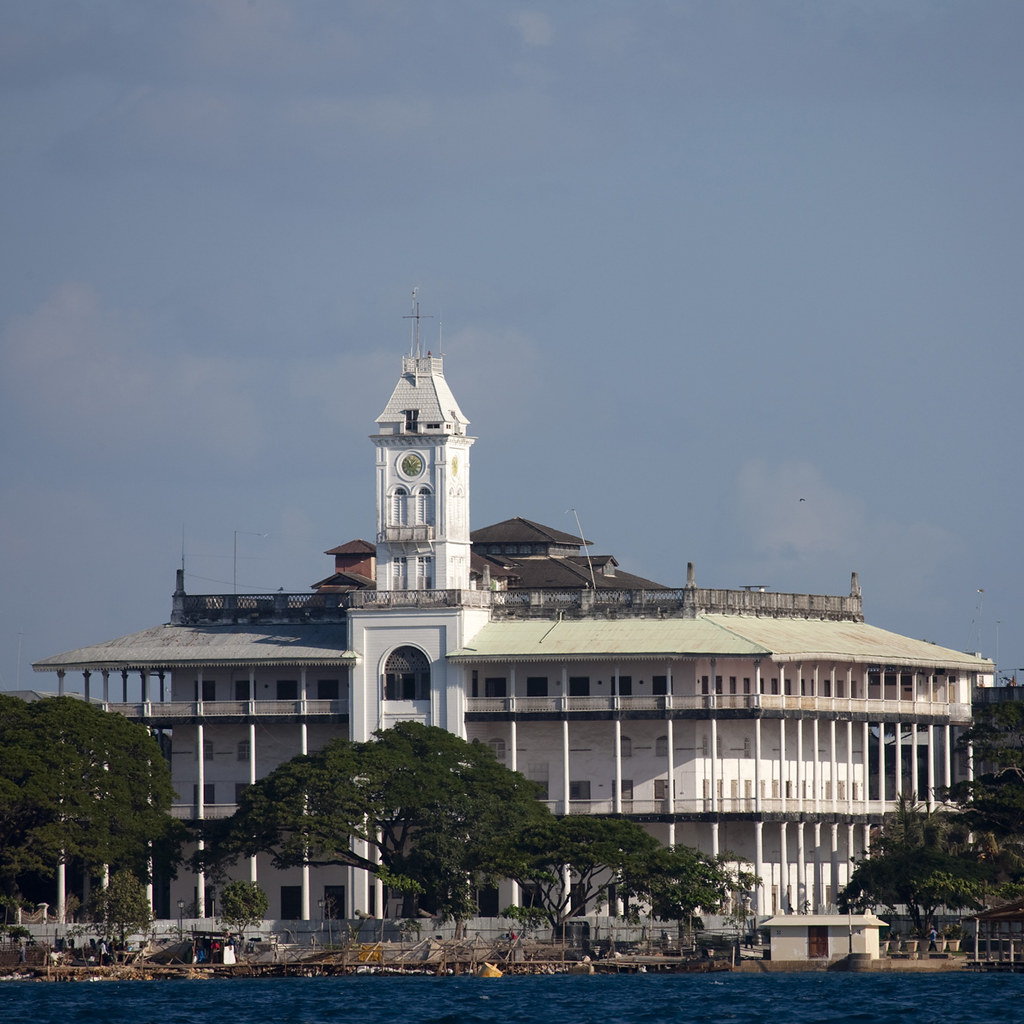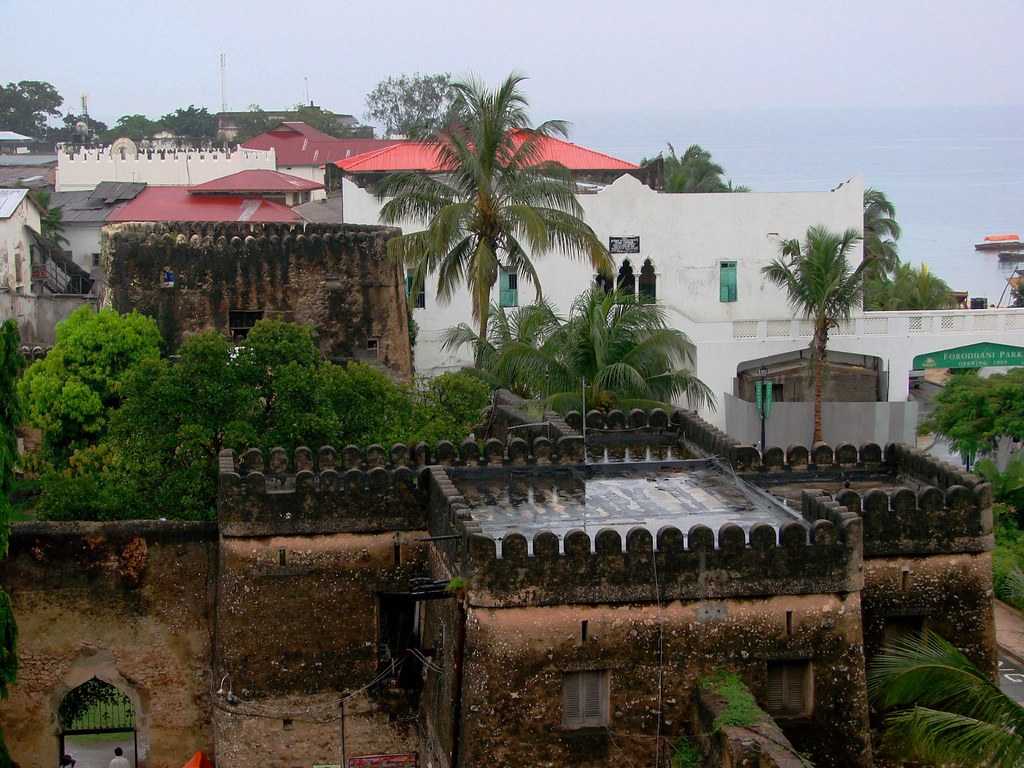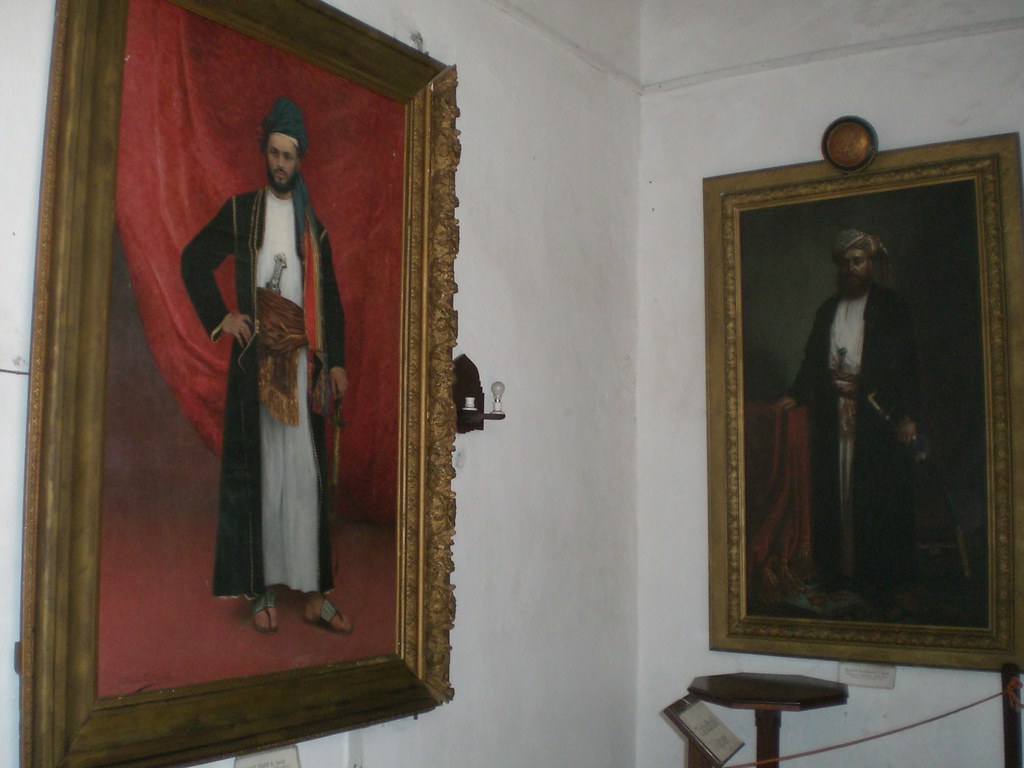How Yemen once introduced the world to mocha coffee
A vendor pours coffee into a cup for customers inside his cafe in the old city of al-Masnaah in al-Mahaweet, north west of Sanaa June 27, 2013. (File photo: Reuters)

By Rua’a Alameri
Al Arabiya English, Sunday, 1 October 2017
Mocha, that sweet chocolaty coffee we enjoy in winter months, has a history far richer than the drink itself.
Most mocha drinkers know the hot brew to be a mix of chocolate syrup, or powder with coffee, but to coffee connoisseurs – that is the equivalent of a fake Louis Vuitton bag.
To get the real taste of mocha coffee, you will have to pay around two to four times the price of specialty coffee. Last year, Yemeni coffee was
priced in the US at $173 a pound. Or you can go back to the roots of the hard-to-find beans in the coastal city Mokha in war-torn Yemen.
Port of Mokha
In recent months, the port city of Mokha has made
headlines due to the ongoing conflict in Yemen between Iran-backed Houthi militias and forces loyal to the government of President Abdrabbuh Mansur Hadi, backed by the Arab coalition.
However, Mokha is better remembered as the heart of Yemen’s 200-year trade monopoly over the sale of coffee. It was from this port - its point of origin - that the chocolate coffee cocktail popular in the West and the rest of the world got its name.
“Yemen exported all its coffee from the Port of Mokha and it traveled around the world known as mocha coffee…the port was very attached to the product it was shipping,” Anda Greeney, a Harvard researcher in Yemen’s coffee sector and founder of coffee startup Al Mokha, says.
Ethiopian nomadic mountain people are believed to be the first to identify coffee’s stimulating effect. However, it is estimated that the use of coffee brewing as known today would have started in the Middle Ages in Yemen.

View of the Port of Mokha during the second half of the 17th century by Dutch geographer-mapmaker Olfert Dapper made in 1680.
According to the World Coffee Research, the first archaeological evidence of beverage coffee consumption was found in the Yemeni city of Zabid.
During the 15th century, coffee cultivation started within Yemen to meet local needs. In 1450, Islamic Sufis of Yemen first began drinking coffee to stay awake during late night prayer. This led to the transformation of mountainsides into terraced hillsides and people inventing farming techniques to grow coffee.
The love of the dark infusion spread throughout the Arabian Peninsula and Red Sea where traders and merchants met from across the world.
Yemen shipped tons of sterile beans from the Port of Mokha and drinking coffee gained popularity worldwide, with coffee shops opening in Europe beginning in 1650.
‘Wild, rustic and winey’
“If you have never had Yemeni coffee before and you’re having it for the first time, it is like a very bright, unique coffee experience,” Yemeni coffee researcher Greeney said.
Grown traditionally without chemicals in Yemen, the coffee is said to be wild and usually full-bodied with a rich, winey acidity.
Greeney says that the uniqueness of Yemeni coffee is that it is dry processed. Also known as “the natural process,” it is the oldest method and considered the simplest and most organic method.
After picking the cherries from the coffee trees, they are left to dry under the sun. Once the soft juice cherry turns hard to the touch, it shrinks and becomes dark brown to black. The fruit is removed and you are left with the bean.

A farmer walks past trees of qat, a mild stimulant, cut down as part of a local campaign aimed at uprooting qat and replacing it with coffee plants in Haraz mountains, west of Sanaa, 2013. (Reuters)
Some believe that the drying process gives the coffee sweet and intense fruity notes. The flavor is often described as complex, very earthy and deep with a distinct taste.
“In Yemen, there is a variety of coffee, and is a field of emerging research. There are varieties that you don’t have anywhere else in the world and that certainly has an impact on this unique Yemeni flavor profile,” Greeney explains.
The World Coffee Research says that while the Arabica coffee beans originate from Ethiopia, the Bourbon genetic base originates from coffee trees found in the city of Mokha. Bourbon beans are said to be known for their deep, buttery chocolate flavors, as well as their sweetness and very light fruit overtones.
From Mokha to Mocha
From the coffee bean in Yemen, to those served at local cafes, there is still no real evidence show where the name Mokha came to represent the drink as we know it today. A possibility for confusion derives from what has been described as the occasional chocolate tones of Yemeni coffee.
From extensive research, Greeney says it could be down to a change in meaning of what Mocha is.
“There was a linguistic shift at the turn of the 20th century,” he said. Greeney explained that the first recorded reference of mixing coffee and chocolate comes from a
Betty Crocker recipe of a “Mocha Cake” with a coffee frosting, using mocha coffee dated from 1892.

A sign advertising an Iced Mocha beverage is seen at a McDonald's restaurant in Kansas City, 2007. (AP)
The second reference appears in 1920 when the
Washington Post published a recipe for a “Chilled Mocha” which had milk, coffee, cocoa, sugar and vanilla.
Up until the 1900s, Greeney says old coffee publications such as the
Tea and Coffee Trade Journalreferred to mocha coffee coming from Yemen, and at the same time, recipes of coffee and chocolate mixed together began to emerge.
However, as Yemeni coffee production declined, and other parts of the world began their own production, Yemen’s monopoly over coffee trade ended.
Yet consumers continue to crave recipes that mix coffee and chocolate, and it is this Yemeni-born mix that made the drink so legendary.
Last Update: Sunday, 1 October 2017 KSA 20:50 - GMT 17:50
https://english.alarabiya.net/en/fe...ce-introduced-the-world-to-mocha-coffee-.html



































 ..... Last time, it was a 4 month long trek. Car and buses up to Lusaka. Then from there to Kapiri Mposi to catch TAZARA railway (I encourage anyone to take this trip, it is phenomenal) to Dar. 2 weeks in Dar then Zanzibar, back to Dar, then to Moshi to climb kilimanjaro, arusha, visit lake manyara to Ngorongoro crater/serengeti. Back to Dar-> Zanzibar then on dhow to Muscat. Those were the days without any cellphone etc. only way to send message back was either via telegram or find a ham radio operator to send a message back.
..... Last time, it was a 4 month long trek. Car and buses up to Lusaka. Then from there to Kapiri Mposi to catch TAZARA railway (I encourage anyone to take this trip, it is phenomenal) to Dar. 2 weeks in Dar then Zanzibar, back to Dar, then to Moshi to climb kilimanjaro, arusha, visit lake manyara to Ngorongoro crater/serengeti. Back to Dar-> Zanzibar then on dhow to Muscat. Those were the days without any cellphone etc. only way to send message back was either via telegram or find a ham radio operator to send a message back.




